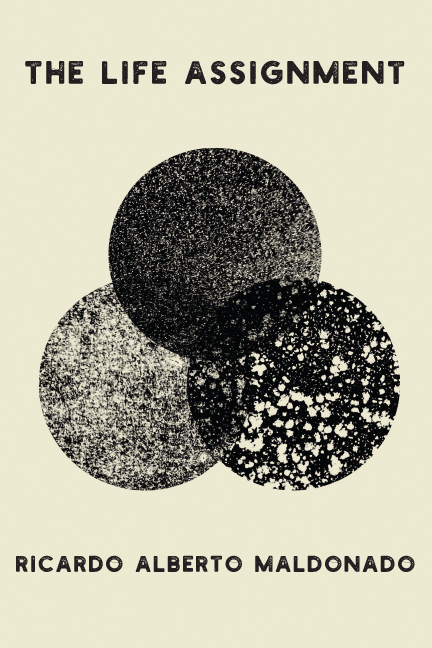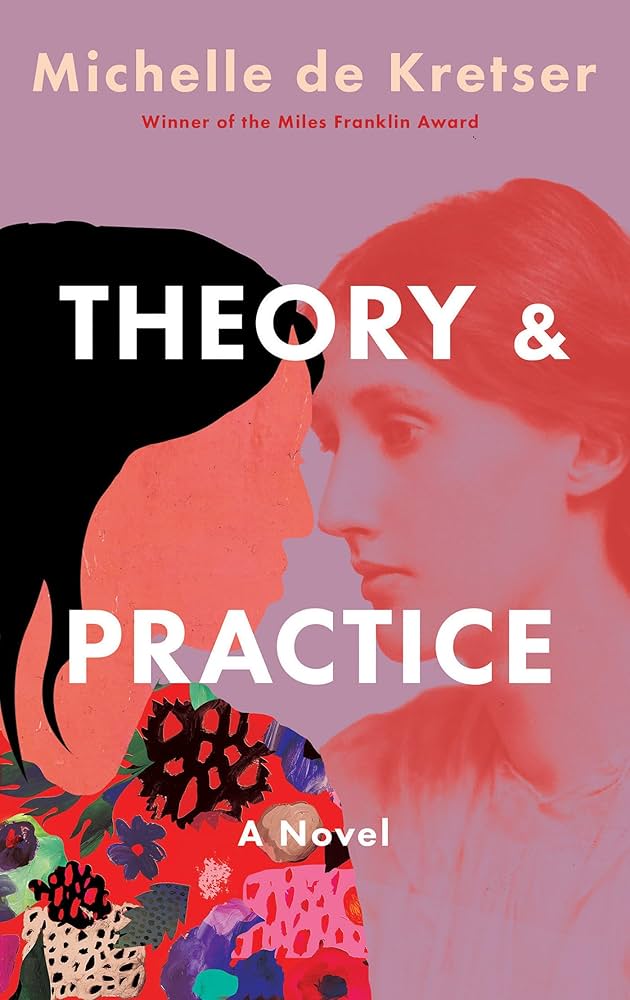Book by RICARDO MALDONADO
Review by ALICIA MIRELES CHRISTOFF
The word ‘heart’ means nothing to the heart. –Dionne Brand
Ricardo Alberto Maldonado calls his poems incantatory: they are meant to be sung or recited, to gather sense through their sounds. I felt this reading The Life Assignment: the enormous power of words–flat on the page and threatening permanent inertness–rising up animated and alive when given mouth and breath and ear, like fallen leaves swirled up by the wind. The collection opens with “I Give You My Heart / Os doy mi corazón,” written the week of September 20, 2017, after Hurricane Maria, the Category 5 superstorm that devastated the island and killed thousands in the Caribbean, made landfall in Puerto Rico. Maldonado’s speaker – perhaps living at a distance from the island, in New York City, at the time, like the poet himself – intones:
I find myself on my feet with fifteen leaves.
Everything carries its own light on the walls.
I woke up to slaughter, my heart opening
to cemeteries of moon—
the parasites, the drizzle. […]
I found the index of my solitude: my country
in its legal jargon, its piety, its fiction—
Yes. It loves me, really.
The lines are heavy with feeling and with abstraction; they call on the human voice to unleash the full force of their sonority. Two voices, really, because to truly hear this bilingual poem, you have to hear it twice, in both of its tongues. On the next page, Maldonado gives us his Spanish original, printed in black ink rather than in the grayscale of the English translations – not just a typographical choice but a political act to privilege the work in its first language:
Me encuentro de pie con quince hojas.
Brilla todo en los muros.
Desperté en su sacrificio: mi corazón se abría
entre cemetarios de luna—
los parásitos, la llovizna. […]
“I Give You My Heart/Os doy mi corazón,” incanted twice over, comes through in stereo, in symphony: it expands from two voices into a choir, made up of steady rainfall, the chatter of insects and coquí and other small things of the island, the static across downed telephone lines (parásito might indicate the English cognate parasite but also, in plural, the sound of interference on a radio), the sound of 3 million Puerto Rican hearts breaking on the island and 6 million more in its diaspora.
Encontré el índice de soledad: mi país
en su jerga legal, su piedad, su ficción—
Sí. Me quiere, de verdad.
My country, it loves me, I promise. My country loves me enough to miscount our dead. The U.S. government loves me enough to make me empty PROMESAs, to strap me with debt, to give me a non-voting representative in the House, to toss me a roll of paper towels. To share its Bounty in our time of need. My country loves me, it loves me not. Me quiere, no me quiere. The poem can say both things because it speaks with two tongues.
Or with a tongue that is split. This is what Maldonado, along with his collaborators and fellow Puerto Rican poet-translators Carina del Valle Schorske, Erica Mena, and Raquel Salas Rivera imagine in their co-edited anthology Puerto Rico en mi corazón (titled after the slogan of the Young Lords, the Chicago- and New York-based radicals who pushed for Puerto Rican independence in the late 1960s): “When we decided our project would have to be bilingual, we were not declaring the ‘equality’ of English and Spanish or initiating a ‘cross-cultural’ exchange. Ours is one culture whose bleeding edges cannot be bandaged. Ours is a tongue forked by cutting.” The Life Assignment chants with a forked and bleeding tongue.
Bilingual poems make up about a quarter of The Life Assignment (the remaining poems were composed in English and are printed in black ink and without a paired Spanish translation). In the book’s notes, Maldonado emphasizes that although his translation process “dictated some changes” to his Spanish originals, “at no time were concessions made to the language of (our current) Empire.” The parenthetical is everything. To speak of Empire in Puerto Rico is to speak in the plural, of two imperial regimes, current and former (Spain controlled the island from the time of European “contact” in 1493 until 1898, when the U.S. invaded Puerto Rico during the Spanish-American War), and two colonial languages, both impresses of power, both agents of epistemicide – assaults on entire ways of knowing and being.
It is tempting to imagine Spanish, in its opposition to U.S. “settler monolingualism” (to use Sarah Dowling’s powerful phrase), as the language of resistance. Despite the fact that Spanish is the native language of 41 million U.S. Americans (and is spoken by 11 million more U.S. bilinguals), to many Americans it is considered a “foreign” tongue. This is how the ideology of settler monolingualism, as a “critical component of neoliberal multiculturalism,” operates: it “subordinates other languages, making them minor, particular, foreign, heritage, or cultural.” The task of an anti-colonial poet, then, is not simply to elevate Spanish, but to place it in its larger geopolitical context, “framing Spanish simultaneously as a colonized language within the U.S. and a colonial language in the hemisphere.” There is no speaking, no translating, no poetry-making, that does not make “concessions” to the language of Empire(s). The Life Assignment reminds us that these concessions are lived as a wounding: a tongue forked, a heart torn, a people divided between the island and its diaspora reaching for contact after the storm.
“Bounty” (first published in the Issue 16 “De Puerto Rico: Un año después de la tormenta” portfolio of this magazine) begins with a text message, positioned like the header of a letter, sent from the island to the mainland the day after María hit:
“pero estamos vivos”
21 de septiembre de 2017
But we’re still alive. Part of the wonder of these words is that the message got across: wind-downed cell towers and months-long power outages on the island left many “stateside” Puerto Ricans out of touch with their families and loved ones, unsure whether or not they had survived. “Bounty” — internally bilingual, moving across English and Spanish as well as black and grayscale type – is a counting poem. How many homes across the ocean? How many deaths, and how many still living? Whose count? How many men and how many mothers, and who are we to blame?
One lápiz. One pen. One ocean between us. Six: Home.
Seven: FEMA: four thousand more,
I recite.
I state I am large; we are to be
larger. Uno dos tres siete dieciséis cuatro mil
[…]
I accuse one man. Two men. Three men. Men men. State
men. I accuse whomever I find I have found.
Mother, I founder.
One meaning of the life assignment: to be born into a language (or a split between languages) that will forever limit the count of your freedoms. This meaning carries its inverse. The language you are assigned at birth, especially but not only if you are a poet, then becomes your life’s assignment: it will be your lifelong task to work this language, to find your own ways to bend and break it. To find ways to founder, and in that foundering—perhaps, as in “Bounty,” bobbing between two languages—to find and to found something new. To turn to Dowling again, this is the radical possibility of what she calls “translingual poetics”: a poetry “self-consciously positioned between languages” that “foregrounds historical processes of contact, colonization, migration, and assimilation, locating the evidence and effects of these violences in language and in languages.” This translingual poetics is what The Life Assignment enacts in its most glowing moments, in lines that mourn and sing and rail and self-estrange and love and pray.
To be sure, there is more than one Spanish, and more than one way to transform a colonial language “from below.” Strains of Puerto Rican Spanish make this beautifully clear, retaining traces of Native Taíno language as well as languages from West and Central Africa brought to the island by enslaved people and their descendants. But this isn’t the strategy of The Life Assignment, which uses a “high”-register Spanish (as in the use of vosotros in “Os doy,” a form of address spoken in Spain but generally not in Latin America), reaching perhaps for the liturgical and the legacies of the Catholic church. The internal bilingualism of “Bounty” is the exception in a collection whose standard practice of splitting English/Spanish into original/translation pairs of poems Dowling might bar from the ranks of a truly translingual poetics, distrusting their reliance on a rather static-free “translational equivalency” between versions. The Life Assignment finds its opportunities for subversion elsewhere: in its derailing of lyric subject and neoliberal selfhood.
The lyric subject of these poems flickers in and out of view: Ricky and not Ricky (as in “I, Ricardo, Detached from the Human Ricardo / Yo, Ricardo, separándome del humano Ricardo”), reportage and invention, confession and evasion, truth and lies. One love poems urges us to skirt “the adjectives assigned / to us in lovemaking (reckless, confused).” This is a collection that rejects engrained late-capitalist routes of self-expression because it knows there is only one place they can lead: one man = state man. These poems prefer to enter the more elliptical territory of the incantation, of language unmoored from a singular speaker and therefore capable not only of referring to what already exists, but capable too of calling new things into being.
“The Commodities Market”/“El mercado de materia prima” shapes itself as a prayer – a litany invoking a modern and awful God, named and renamed in each short stanza:
God at our borders, the salt
of Our Lord, God’s ocean of cotton, of sugar.
El Dios en las fronteras, la sal
de su Dios, su mar de algodón, de azúcar.
Here in this naming is an entire history of modernity, its cradle in the Caribbean colonies. When Maldonado calls upon God, he calls upon him to explain his creation of racial capitalism, from its inception in the Atlantic slave trade (“the salt of Our Lord”) and the sugar plantations of West Indies (“God’s ocean…of sugar”) to the cotton fields of the U.S. south (his “ocean of cotton”) to its modern incarnations (“God at our border”). Later stanzas pray, mixing iconography and modern horror, to the God of the ICE lockup and the flowering wound:
The wall of our Lord, Our Lord in God’s roses,
Lord’s wound flowering red.
One heaven of fog clouding faces for heaven of roses—a heaven
for God, Our Lord and the Darkness
of numbers, Lord’s icebox, Lord’s cages
for the Children of God, an armful of roses …
El muro de Dios, el Dios de sus rosas,
Dios su llaga de flamboyán.
El cielo estaba encancaranublado, encancaranublado de rosas
de Dios, Dios en su turbios
números, la hielera de Dios, las jaulas de Dios
de sus niños, sus rosas de manos…
The transcendently unstranslatable moment in this poem revolves around a rusty old tongue twister that cuts its teeth on the confusion between the Maker and the Made: “El cielo está encancaranublado / ¿Quién lo encancaranublaría? / El que lo encancaranubló, / buen encancaranublador sería.” The sky is en(cloud)chanted. Who would en(cloud)chant it? He who en(cloud)chanted it, a fine en(cloud)chanter would be. God of the sun breaking through the clouds in patches, God of the hurricane sky, God of the scattered roses, what is it that you have made, and who are we that are left standing to praise you? Pero estámos vivos.
Alicia Mireles Christoff is Associate Professor of English at Amherst College. She is the author of Novel Relations: Victorian Fiction and British Psychoanalysis (Princeton UP, 2019). Her essays and poems have appeared in PMLA, Public Books, Los Angeles Review of Books, The Yale Review, and Peach Mag, among other venues.




